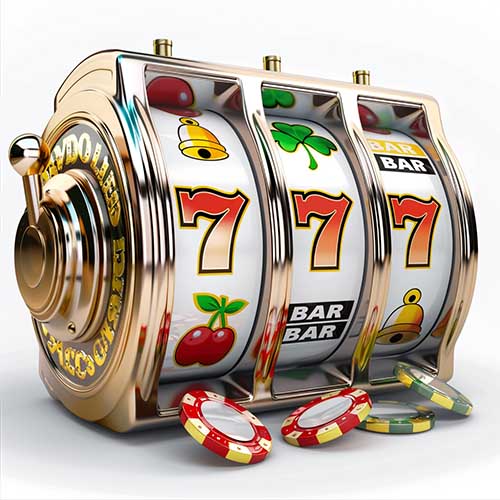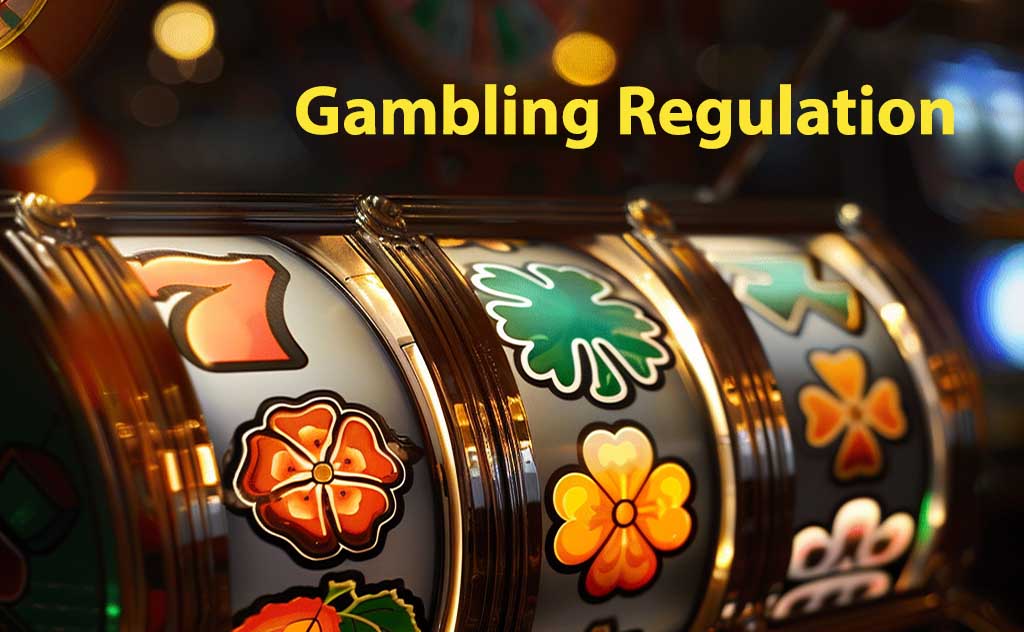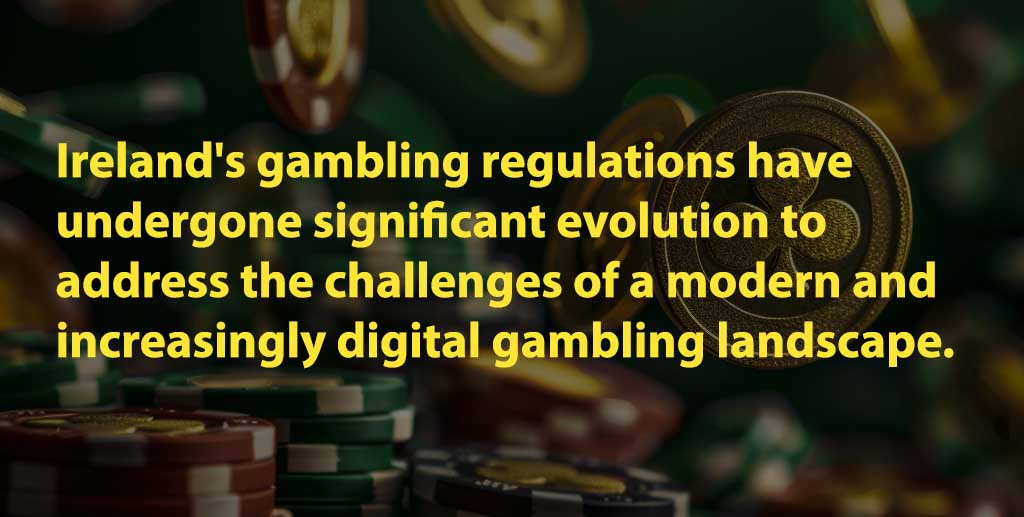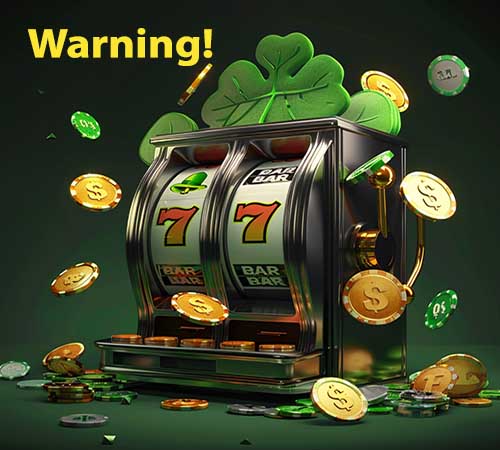Gambling, a popular pastime in Ireland, governed by evolving laws and regulations. The legal landscape of gambling has been shaped by various pieces of legislation, most notably the Gaming and Lotteries Acts 1956 to 2019. However, the rapid growth of online gambling and the emergence of new forms of gambling have posed significant challenges to the existing regulatory framework. The lack of a unified approach is set to change with the introduction of the Gambling Regulatory Authority of Ireland (GRAI). Our comprehensive article on Irish gambling regulation will enlighten you about this body as well as the Gambling Regulation Bill. Let’s get started.
Irish Gambling Laws: Is Gambling Legal in Ireland?
Yes, gambling is legal in Ireland. However, it is regulated under a framework of laws and amendments designed to ensure fair play, consumer protection, and the prevention of illegal gambling activities. Here’s a quick breakdown of the legal forms of gambling in Ireland:
- Betting on sports and horse racing (like horse and greyhound racing) is legal, both in person at licensed betting shops and online with licensed operators (domestic or offshore).
- Charitable and national lotteries. The National Lottery, established in 1987, is the most prominent legal lottery. It offers games like Lotto, EuroMillions, and Daily Million, along with scratchcard games, televised bingo, and Millionaire Raffles.
- Gaming machines such as slot machines are legal in designated areas with licenses.
- Bingo games operated in licensed bingo halls and for charitable purposes under specific regulations.
On the other hand, Ireland doesn’t allow land-based casinos. Casinos have been considered illegal since the Gaming and Lotteries Act of 1956, but due to a legal loophole, Irish casinos can operate if they are membership-based. There are 12 such casino clubs in Ireland, seven of which are located in Dublin. They function as mini-casinos but have a membership requirement that allows them to operate within legal boundaries.
These clubs do not require a specific casino license. Still, they must adhere to the regulations set out in the 1956 Gambling Act in Ireland and its amendments, particularly the Gaming and Lotteries (Amendment) Act 2019. Knowing these Irish gambling laws is essential for staying on the right side of the law.
Is Online Gambling Legal in Ireland?
Yes, online gambling is legal in Ireland. This also means that online casinos are legal. Irish gambling law permits players to play on licensed domestic and reputable offshore casinos. However, a stringent regulatory framework ensures it is conducted fairly and responsibly. For instance, operators must be licensed, adhere to consumer protection measures, and comply with advertising regulations. This legal environment aims to provide all participants with a safe and fair gambling experience.
Notably, the proposed Gambling Regulatory Authority of Ireland (GRAI) is expected to affect online gambling regulations in Ireland significantly. Here’s how:
- The GRAI will introduce a single licensing system, streamlining the process and ensuring consistent standards across all online gambling activities.
- The body will enforce more stringent requirements for consumer protection measures such as responsible gambling practices, stricter age verification, and advertising restrictions.
Overall, the GRAI’s influence on online gambling regulations aims to create a safer and more transparent environment for Irish online gamblers. We will look into this later in the next section
Who Regulates Casinos in Ireland?
There isn’t a specific regulatory body overseeing casinos in Ireland. The regulation of casinos and gambling activities involves several authorities, each with particular responsibilities. For instance, the Irish Revenue Commissioners supervise the licensing and tax regulation for betting and online betting operators. On the other hand, local authorities permit smaller-scale gaming and lottery activities under the Gaming and Lotteries Acts.
Despite this complexity, the Revenue Commissioners handle licensing and tax obligations for other forms of gambling. On the other hand, An Garda Síochána (Irish Police) enforces gambling laws and ensures private members’ clubs comply with legal requirements. They have the authority to inspect premises and enforce compliance.
Once the new regulatory body, the Gambling Regulatory Authority of Ireland is implemented, it might implement stricter regulations for these clubs, potentially including responsible gambling measures and age verification procedures.
 Irish Gambling Regulation
Irish Gambling Regulation
Several pieces of legislation govern gambling regulations in Ireland. These are;
Gaming and Lotteries Acts 1956
Before 1956, gambling laws in Ireland were scattered and somewhat loose. The Gaming and Lotteries Acts aimed to bring more control and establish a more transparent framework. Key components of this act include;
- Gaming Regulations. This section specifically targeted unlawful gaming activities. It prohibited cheating at games, operating gaming machines without a permit, and using premises for unlawful gaming.
- Lotteries Regulations. The 1956 act distinguished small-scale and large-scale lotteries. It allowed small-scale lotteries without the need for a license, while larger lotteries required a permit from the District Court.
- Private Members Club. Traditional commercial casinos are prohibited. However, private members’ clubs can offer casino-like services under strict conditions.
While the 1956 Act brought more structure to gambling regulations, it wasn’t perfect. The gambling act in Ireland predates the rise of online gambling, so it didn’t address this growing sector. Over time, amendments were made to address these issues, culminating in the significant update introduced in 2019.
Gaming and Lotteries (Amendment) Act 2019
The 2019 Act aimed to modernize the 1956 framework to better reflect the evolving gambling landscape. A key focus was streamlining the application process for permits and licenses, particularly for smaller-scale activities. This aimed to make it easier for organizers of local events or charities to run small lotteries or have limited gaming activities.
Some key aspects of the Gambling Act in Ireland include;
- Increased Stakes and Prizes. The amendment raises gaming machines’e stakes and prize limits, allowing for higher payouts and making gaming more attractive to players.
- Consumer Protection. Strengthens age verification requirements to prevent underage gambling, ensuring that minors are protected from gambling-related harm.
- Enforcement and Penalties. The Act increased penalties for operating lotteries without a license, acting as a deterrent against illegal gambling activities.
Overall, the 2029 Act simplified the licensing process, and clearer regulations made it easier for operators to comply with the law. The consumer protection measures were also strengthened.
Betting Act 1931
The Betting Act 1931 was one of the first irish gambling regulation established to regulate the betting industry . It focused on regulating bookmakers and betting houses. The act established a system for licensing bookmakers and registering their betting offices. It set out specific hours for betting offices to operate and the payment of a betting duty. They were also required to maintain accurate records of all bets placed, ensuring transparency and accountability.
This gambling act in Ireland was later superseded by more comprehensive gambling legislation.
Betting (Amendment) Act 2015
The Betting (Amendment) Act 2015 was introduced to modernize and extend the regulatory framework established by the Betting Act 1931, particularly in response to the rise of online and remote betting.
The amendment extends licensing requirements to include online and remote betting operators, ensuring they are subject to the same regulatory oversight as land-based bookmakers. This meant online gambling operators needed to obtain a license from the Irish Revenue Commissioners to operate legally in Ireland.
The act established a betting duty on all wagers placed by Irish residents with remote bookmakers. This ensured online gambling contributed to Irish tax revenue. In addition, licensed operators must maintain detailed records of all bets placed and transactions conducted. These records are subject to inspection by the Revenue Commissioners.
Typically, the Betting (Amendment) Act 2015 addresses the challenges posed by the rise of online betting. By extending licensing and taxation to remote operators, the amendment ensures a fair, competitive, and regulated betting environment.

Gambling Regulatory Authority of Ireland (GRAI)
The Gambling Regulatory Authority of Ireland (GRAI) is a new statutory body expected to be established in 2024. Its primary function will be to oversee and regulate all gambling activities in the country.
This Irish gambling law will be responsible for:
- Licensing: It will Implement a single licensing system for all forms of gambling, including online and physical casinos, betting shops, lotteries, and potentially other activities. This gambling law Ireland will streamline the process and ensure consistent standards across the industry.
- Consumer Protection: The GRAI will protect consumers by ensuring fair play, regulating advertising, and promoting responsible gambling practices, including self-exclusion programs, deposit limits, and access to support services for problem gamblers. This Irish gambling regulation will establish a Social Impact Fund to support research and programs to tackle gambling addiction. It will also establish and maintain a National Gambling Exclusion Register to maintain a register of people who have self-excluded from gambling.
- Compliance and enforcement: This new proposed regulation will ensure that gambling providers comply with restrictions imposed on advertising and sponsorship. It will also take enforcement actions against operators who violate regulations, including fines, license suspensions, and revocations.
- Public Awareness and Education: Conduct public awareness campaigns to educate consumers about responsible gambling and the risks associated with gambling. It will also engage with stakeholders, including operators, consumers, and advocacy groups, to gather feedback and improve regulatory practices.
It is essential to note that the GRAI is still under development, with the Gambling Regulation Bill outlining its legislative framework currently undergoing legal development in Ireland.
The Gambling Regulatory Authority of Ireland will replace the fragmented system where different authorities oversee various gambling activities. This will provide a more centralized and consistent approach to regulation. It is also expected to operate transparently, making the gambling industry more accountable and potentially reducing opportunities for illegal gambling activities. Lastly, this Irish gambling regulation will have a huge economic impact by encouraging investment and innovation, supporting the growth of the gambling industry.
Ireland Gambling Age
The legal Ireland gambling age is 18. This applies to all forms of gambling, including lotteries, betting on sports and horse racing, casinos, lotteries, and bingo. Gambling operators must implement robust age verification processes to ensure participants meet the minimum age requirements. Both operators and individuals can face penalties, including fines and potential legal action, if they do not adhere to this gambling law in Ireland.
What is the New Gambling Law in Ireland?
The new gambling law in Ireland is the Gambling Regulation Bill, which was passed by parliament in November 2022. The bill is expected to address the shortcomings of previous legislation and provide a modern framework for regulating all forms of gambling in Ireland.
Key points about Ireland gambling bill include:
- Pave way for the establishment of the GRAI.
- Introduce a single licensing system managed by the Gambling Regulatory Authority of Ireland. This will apply to all forms of gambling.
- Provide a modern and streamlined approach to gambling activities to replace the current regime.
- Enhance measures protecting consumers, particularly vulnerable individuals, from gambling-related harm.
- Ensure all gambling activities are conducted fairly and transparently.
- Monitor and regulate the gambling market to prevent illegal activities and promote responsible gambling practices.
- Prohibit the use of credit cards as a means of payment for gambling, the use of electronic methods of payment that are funded by credit cards, and the offer of credit facilities to players
The GRAI will be the central regulatory body overseeing all gambling activities in Ireland. It will have broad powers to enforce compliance, including conducting inspections and imposing penalties. The Ireland gambling bill is still being discussed in parliament.
Irish Gambling Regulation: Is Gambling a Problem in Ireland?
Yes, gambling can be a problem in Ireland. According to the irish government approximately 130,000 adults have a gambling problem. In addition, according to a 2019 study by the Health Research Board, around 0.8% of the adult population is considered problem gamblers, while 2.3% are at moderate risk. Men are more likely to experience gambling problems than women, and younger individuals are also at higher risk.
There are resources available to help those struggling with problem gambling. For instance, GamblingCare was established in 2019 to broaden public understanding of safer gambling and offer support quickly and effectively. They provide advice, advocacy, and referrals to current support services to help people at all stages of the addiction process.
Consult with a problem gambling institution if you or someone you know is struggling with problem gambling.
To Sum Up
Irish gambling regulation are on the cusp of a significant transformation. Gaming and Lotteries Amendment Act 2019 and Betting Amendment Act 2015 have been the foundation of gambling in Ireland. This is because land-based casinos are not permitted, and there isn’t a central regulatory body. However, the Gambling Regulatory Authority of Ireland (GRAI) is expected to ensure a comprehensive and cohesive regulatory structure. It will provide a unified oversight of all gambling activities focused on public safety. It will do so by promoting responsible gambling practices, enforcing age verification, and regulating advertising to prevent targeting vulnerable individuals. Moreover, the anticipated Ireland gambling bill is set to bolster these efforts further. Despite a legal grey area surrounding members-only gambling clubs with slot machines, Ireland is working to have more robust frameworks. As these new Irish gambling laws come into effect, they are expected to provide a more secure and fair gambling landscape, ensuring that operators and consumers adhere to high standards of integrity and responsibility.
Frequently Asked Questions (FAQs)
[/answerFAQ]

